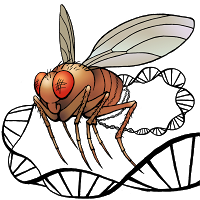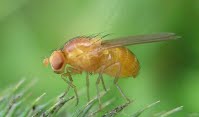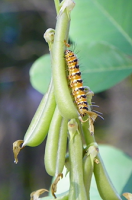Research
Recent advances in molecular biology opened exciting opportunities to study the interface of ecological, evolutionary and genetic processes for a detailed understanding of evolution of adaptations. In general, the main goal of our research program is to study the ecological pressures in the wild that influence the patterns of variation at the genomic level and result in the evolution of adaptations. We are interested in adaptations to the abiotic factors of the environment, as well as adaptations to ecological interactions. We have three main research programs:
Clinal adaptations in Drosophila melanogaster

- We have been using natural populations of D. melanogater collected along a latitudinal cline in the East coast of North America to study adaptations to climatic conditions. We are particularly interested in understanding evolution of reproductive diapause associated with overwintering, as well as to discern between natural selection and neutral factors as the causes of patterns of variation at the genomic level. We plan to expand this program by studying clinal variation in South America and look at variation in the entire genome. This project is developed in collaboration with the groups of Prof. Walter Eanes (Stony Brook University) and Prof. Paul Schmidt (University of Pennsylvania).
Evolution of ecological interactions (drosophilids and their natural enemies)

- We have been using the interaction between Drosophila species and viruses as a model system to understand coevolution. By tracking the genetic basis of the mechanisms of virus resistance, we intend to address classical questions in coevolution, evolution of host-parasite specificity, and the maintenance of genetic variation in natural populations. We are expanding this research program by searching for novel natural enemies in wild populations and by investigations of the selection pressures that natural enemies impose in the field. This is a collaborative project with the group of Dr. Frank Jiggins (Cambridge University).
Evolution of ecological interactions (in a plant-herbivore system)

- We have been using a highly integrative approach to study coevolution in an ideal plant-herbivore system: the alkaloid bearing legume Crotalaria pallida and its seed predator, the arctiid moth Utetheisa ornatrix. Our long term goal is to develop a through history of evolution of this specific interaction to unravel coevolutionary dynamics and to demonstrate reciprocal coevolutionary selection. This is a collaborative project with Prof. Douglas Futuyma (Stony Brook University) and Prof. José R.Trigo (Universidade de Campinas).